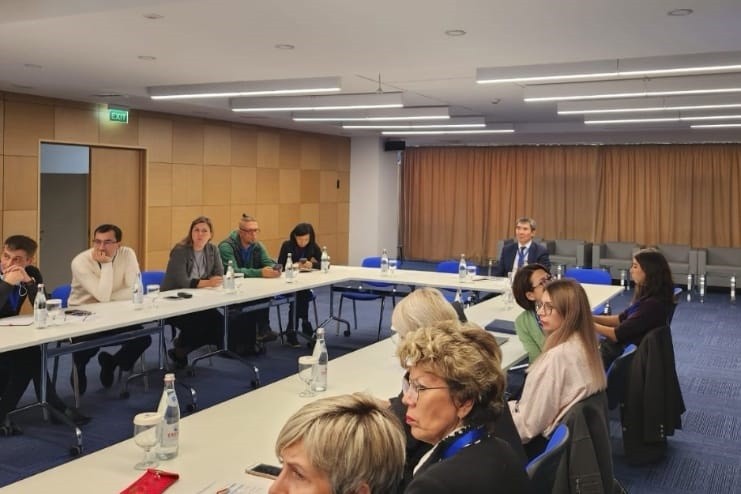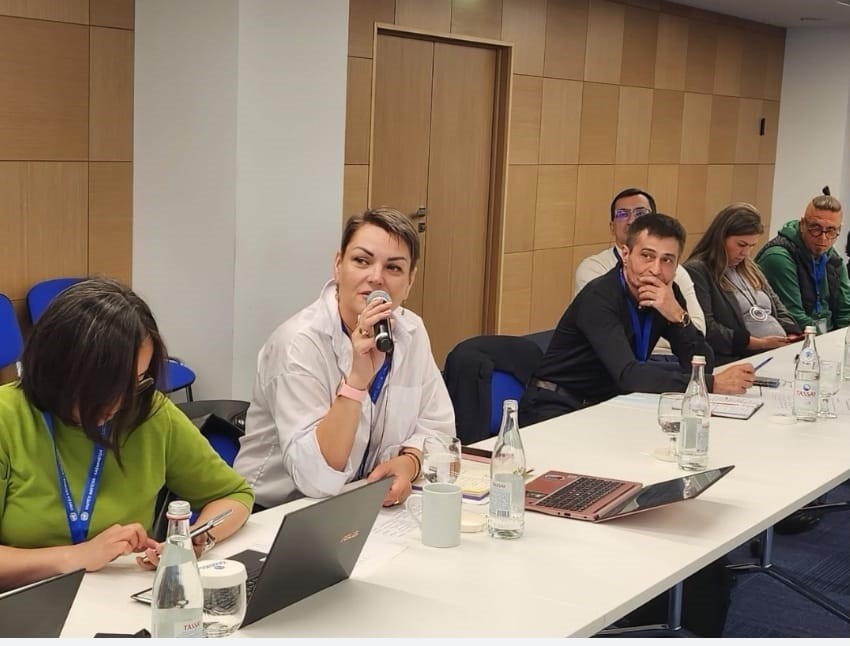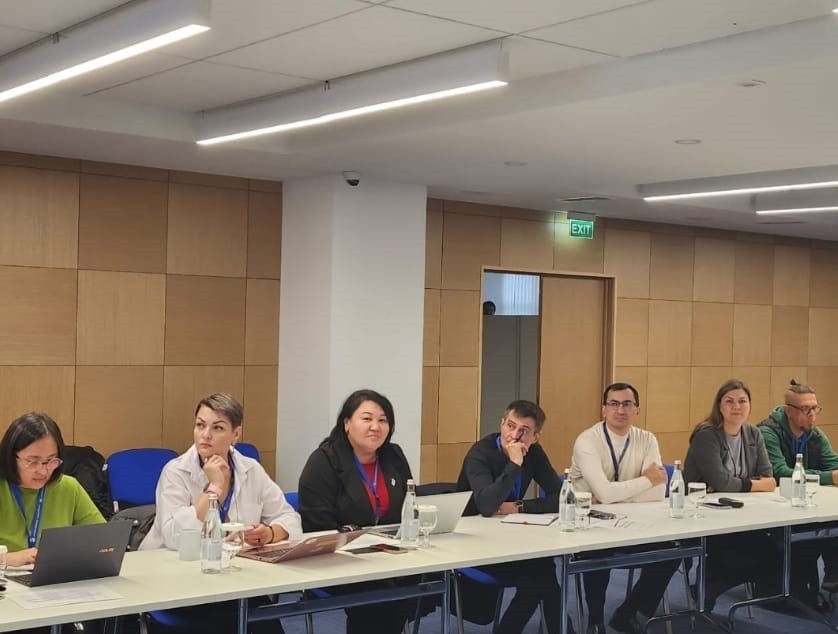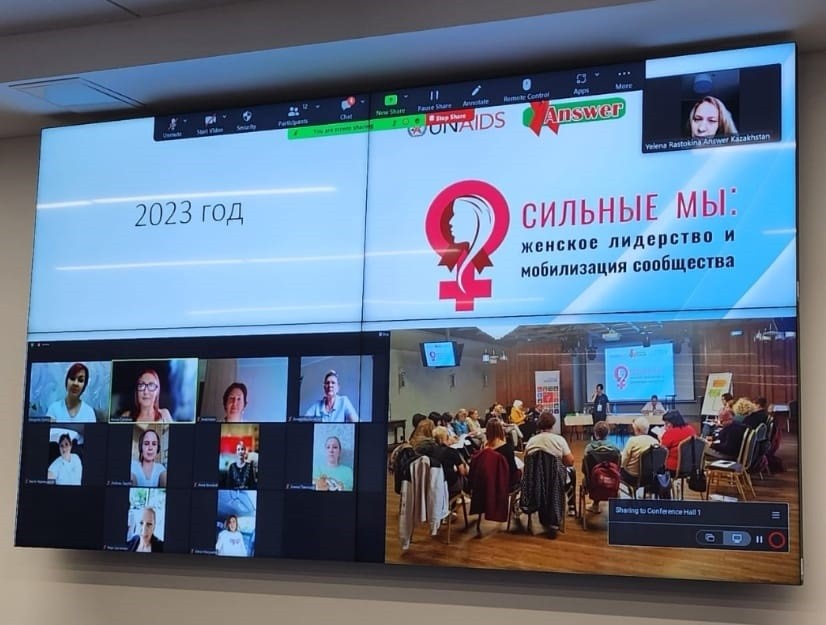
Обычная версия сайта
Republic of Kazakhstan, Almaty, Raimbek Ave., 60
Location map+7 (727) 39742 23 Reception
+7 (727) 39742 17 Registry
+7 (727) 39742 06 Helpline
1414 Single contact center


Обычная версия сайта
Republic of Kazakhstan, Almaty, Raimbek Ave., 60
Location map+7 (727) 39742 23 Reception
+7 (727) 39742 17 Registry
+7 (727) 39742 06 Helpline
1414 Single contact center

September 20, 2023
On September 20 in Almaty, under the auspices of the Joint United Nations Program on HIV/AIDS (UNAIDS) office in Kazakhstan and the UNAIDS regional office for Eastern Europe and Central Asia, an extended meeting of the Joint United Nations Group on HIV/AIDS was held in a hybrid format (online and offline). with the participation of the management and staff of the KSCDIZ of the Ministry of Health of the Republic of Kazakhstan, representatives of AIDS service non-governmental organizations, the community, USAID/PEPFAR and UN agencies (UN Population Fund, UN Office on Drugs and Crime, UN Children's Fund, UN Development Program, UNESCO Institute for Information Technologies in Education ).
The purpose of the meeting is to discuss HIV prevention activities implemented by UN agencies in Kazakhstan within the framework of the UBRAF mechanism (for reference, UBRAF is a unified budget, results and reporting mechanism for activities).
Each UN agency presented the results of the work completed in 2022.
The greatest interest was generated by the feature short film PLUS about the love story of a discordant couple, initiated by UNESCO Almaty, UNESCO IITE and Mass Media Team with the support of UNAIDS Kazakhstan. The focus is on the relationship between a young photographer Ayan and his girlfriend Miki, who dream of starting a family despite the prejudices of others. A romantic tragicomedy about how every person deserves happiness, HIV is not an obstacle to a normal life, and the power of love is stronger than stereotypes, is available for viewing on YouTube UNESCO Almaty: https://www.youtube.com/watch?v=qYMBNy456RY
I would also like to mention the ASPAN chatbot about love, relationships, reproductive and sexual health. The chat bot was developed by UNESCO, UyatAmes and a group of experts, provides answers based on artificial intelligence in Kazakh and Russian, and covers issues of health, psychology, relationships and sexuality:
https://uyatemes.kz/aspan
The attention of the audience was drawn to the publication of the UNFPA office “Providing reproductive health care to key populations at increased risk of HIV infection.” The publication was developed by the Community Friends Foundation with financial and technical support from the United Nations Population Fund (UNFPA) Country Office in Kazakhstan as part of the UBRAF project:
https://kazakhstan.unfpa.org/ru/publications/
I would like to add that UNFPA in Kazakhstan has launched a package of communication products that provide age-appropriate information on reproductive health for adolescents, youth and their parents. These include a website, a mobile application and a chatbot in the Telegram channel. These tools have been produced as part of the Government of Kazakhstan's support to further invest in the health and well-being of young people:
Website - https://shyn.kz/; Chatbot in the Telegram channel - https://t.me/shynkzbot; download the “Shyn.kz” mobile application in PlayMarket (available for Android mobile phones from January 1, 2021).
Other UN agencies also play an important role in the work on preventing HIV infection at the country level, such as UNDP with projects to work with parliamentarians, expanding access of the PLHIV community to IVF within the framework of the Statewide Free Medical Care/Compulsory Medical Insurance, assisting the KazUnion in developing the Strategic Plan of the Kazakhstan Union of People living with HIV, which was developed to define the vision for the future, as well as the goals and objectives of the organization. I would like to note the work of the UN Children's Fund in introducing integrated remote health care services and psychosocial assistance for adolescents, including adolescents living with HIV, at youth health centers in 5 regions of the country (Almaty, Karaganda, Kyzylorda, East Kazakhstan regions and Almaty). The UN Office on Drugs and Crime organized a study visit to Minsk to provide support in the implementation and scaling of the PTAO program, familiarization with best practices, development of intersectoral cooperation and partnerships (health, law enforcement, civil society), and a huge amount of work is being done to improve capacity service and human rights NGOs working with people in MLS and other closed institutions; promoting a human rights-based approach that takes into account gender and the principle of equitable health care in prisons.
Participants carefully reviewed projects aimed at increasing the potential of women living with HIV and adolescents living with HIV, implemented by the branch of the Public Fund “Answer” and the Public Fund Equal to Peer with technical and financial support from the UNAIDS office in Kazakhstan.





